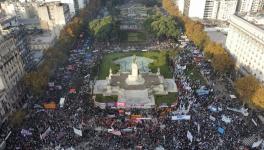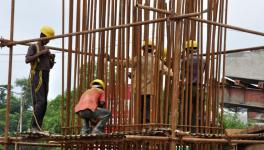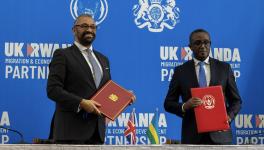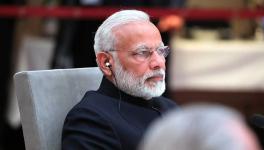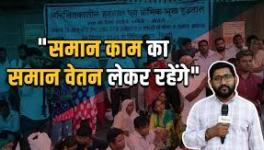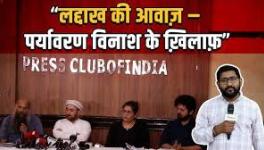“The Class Enemy Remains Stronger and has got Wider Mechanisms to Divide the Working Class”
The European parliament elections held from May 23 to May 26 saw far-right, anti-immigrant parties make significant gains in certain countries in Europe. The left-wing parties suffered a setback even as the ultra-right wing cashed in on the crisis of the center-left and center-right regimes across Europe, especially in France. Peoples Dispatch spoke to Nicolas Maury from the French Communist Party (PCF) on the implications of the electoral outcome. Nicolas Maury is the secretary of the Vaulx-en-Velin’s Committee of the French Communist party (PCF), as well as a blogger at Perspective Communiste.
Peoples Dispatch (PD): How do you see the results of the European Parliament elections? Is this a mandate against the austerity-driven European Union itself?
Nicolas Maury (NM): The results of the European elections are a severe defeat for the communists and the progressive left. The European United Left/Nordic Green Left (GUE-NGL) group lost many seats, and their tally in the new European parliament became 38 from 52. These elections saw the rise of extreme right parties in Italy, the United Kingdom, etc. but also of ecologists in Germany, France, the Netherlands, etc. European policies of austerity were not questioned, as the balance [of power] has not shifted too much. The Conservatives, the Social Democrats and the Liberals have retained the majority in the European Parliament as the European People’s Party (EPP), the Progressive Alliance of Socialists and Democrats (S&D), and the Renew European Union secured 179, 153 and 106 seats respectively.
PD: What is your take on the rise of the ultra-right within Europe? Is it a crisis of ‘social democracy’ in Europe that is feeding into the growth of the right?
NM: The rise of the far-right is explained by several factors, such as the rejection of European economic policies, the rejection of European “elites” who are seen as technocrats, as well as the rejection of immigration. For the far right, the massive immigration from Africa and Arab-Muslim countries would threaten the so-called “Christian” values of Europe. This theory is called the “great replacement” theory. This rise is clearly in line with the crisis of social democracy. Following neo-liberal political choices, the Social Democrats lost their leadership to the conservatives. Spain and Portugal, however, are exceptions in Europe.
PD: The far right in Europe is said to be an anti-austerity, anti-immigrant movement. The European left is said to be an anti-austerity, anti-fascist one. Where and how does the right outsmart the European left in gaining people’s support?
NM: Neither the right nor the extreme right are anti-austerity. These parties support neo-liberal agenda and anti-social policies. As for the left, they are part of an anti-austerity agenda, but to different degrees. The communists generally favor with a break with the austerity policies and other negotiations for a so-called “social” Europe.
PD: The far-right topped the French list of the Members of the European Parliament (MEPs). Macron also got his share. What, then, was the contribution of the 30-week-long Yellow Vests protests? Who benefited from it and who lost?
NM: The far right Rassemblement National (National Rally) party came first in the elections with 23.34% votes, but Macron did not lose the elections. On the contrary, a few days after the results, many local mayors, “The Republicans”, rallied to his party.
As for the Yellow Vests, when they went to vote, many chose to support the far-right to “do the damaging” to Macron, to punish him. In reality, they voted for a party that did not support them during weeks of mobilisations.
PD: What is happening to the French Left? Why did the French Communist Party (PCF) fail to get at least one MEP? The Communist Youth (MJCF), the Union of Communist Students (UEC), the General Confederation of Labor (CGT), etc. have been active in the anti-austerity struggles. Did the PCF expect that outcome?
NM: Since the first elections to the European Parliament (1979), this is the first time that the PCF will go unrepresented as we received only 2.49% of the votes. It is, therefore, necessary to rebuild an electoral base and regain a place in the national political game. Despite a good campaign, we did not win an elected MEP and did not reach the minimum threshold of 5% of the total votes.
The MJCF, the UEC and the CGT fight against austerity, but the class enemy is stronger and benefits from a communication strategy capable of dividing the workers. There is a real loss of class consciousness among workers and people.
PD: Can you also talk about the current status of the communist movement in French overseas territories of Reunion, Martinique and Guadeloupe?
NM: Communist parties have a presence in the overseas territories. The Communist Party of Guadeloupe has two mayors, the Communist Party of Martinique has one MLA and the Communist Party Reunion (the strongest of the communist parties, that has been in crisis for a few years) has one mayor and three MLAs. These parties are independent of the PCF (since 1957).
PD: Could you talk a bit about the movement, La France Insoumise (FI)? How does the PCF see this organisation and are there any chances of unity?
NM: The France Insoumise (FI) is part of an ideological framework called “populist left” (like Podemos in Spain). There is clearly a conflict between the FI and the PCF, as much on the strategies as on the methods. The two formations diverge and clash during the elections. The unity of the left remains difficult as the so-called left forces are diverse, especially the FI and EELV (Europe Ecology- The Greens) no longer claim the “left”.
Get the latest reports & analysis with people's perspective on Protests, movements & deep analytical videos, discussions of the current affairs in your Telegram app. Subscribe to NewsClick's Telegram channel & get Real-Time updates on stories, as they get published on our website.









